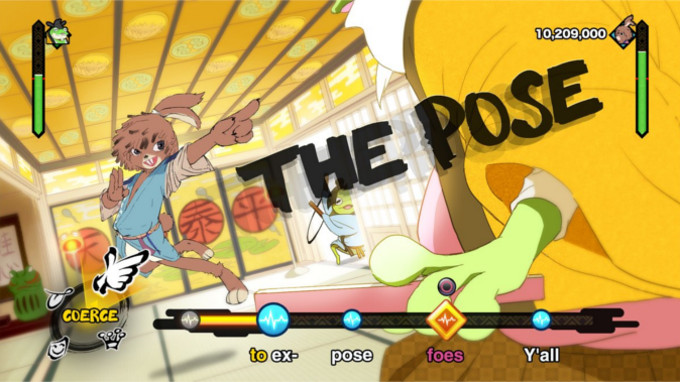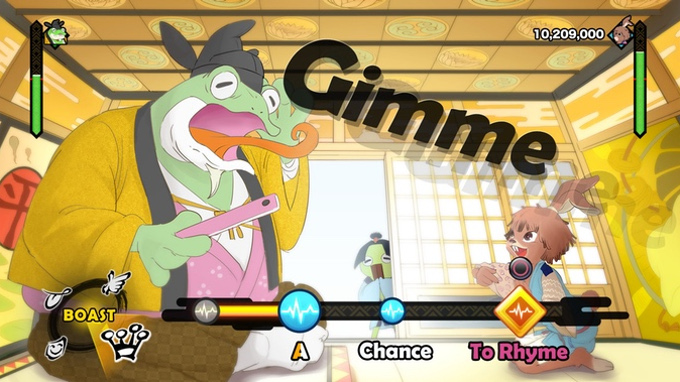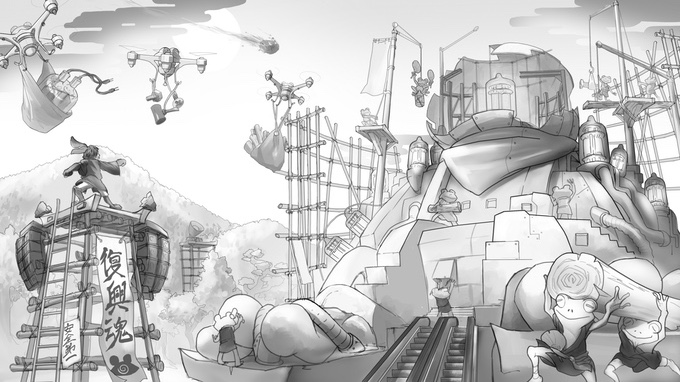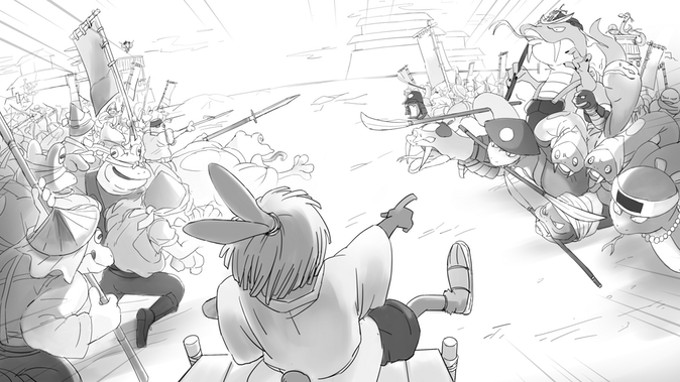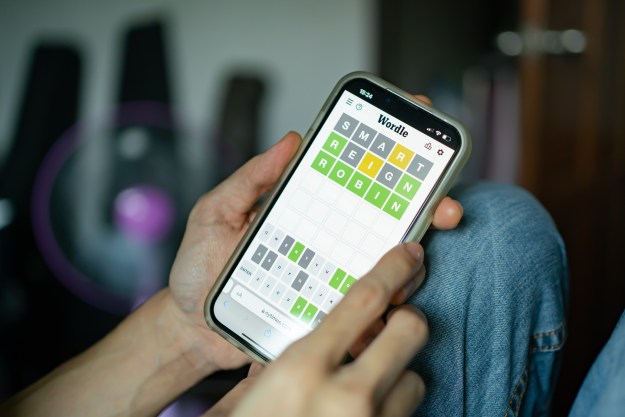First revealed late last week, Project Rap Rabbit mixes Japanese folklore, traditional artwork, hip-hop, and humorous rap battles. It takes place in an alternate version of 16th-century Japan where neighbors are being hostile toward one another. As their homelands become more diverse, neighbors become more suspicious of and isolated from one another.
Players control Toto-Maru, a simple rabbit who harnessed the strength of music, rhythm, and rhyme to counter corruption and small-mindedness. With his sidekick, Otama-Maru, the duo must restore peace and bring about global unification.
Rather than a simple return to form, Project Rap Rabbit brings unique rapping gameplay that evolves traditional rhythm-action mechanics. In a rap battle, the key is to defeat an opponent through musical jabs and uppercuts. To give the player a feeling of control, songs are more than just a series of lines to tap through. Instead, each rap is a series of dialogue trees full of clever rhymes, put-downs, and bragging. The final gameplay will reward experimentations through flexible and dynamic bonus systems.
Like a fighting game, each opponent will have a health bar in the form of Swag Gauges. The winner with the opponent with the most amount of swag. Each song is made of call-and-response segments which can be broken down into steps. First, players listen and select keywords from the other rapper. Then, players choose how they want to respond and press the face buttons in time with the following rhythm. Responses are chosen with an emotion wheel. Players can boast, joke, laugh, or coerce.
During a rap battle, each foe reacts differently to each emotion. Figuring out the more powerful emotional response will affect them more while simultaneously boosting Toto-Maru’s swag.
Beyond the basic objective, replayability comes in the form of competitive leaderboards. While matching the beat perfectly will net good scores against friends, serious scores will require a bit more experimentation.
Project Rap Rabbit brings together the dream team of Masaya Matsuura and Keiichi Yano for the first time. Their two studios, NanaOn-Sha and Inis J have turned to Kickstarter to help fund the game. At the time of writing, the game has already raised over $70,000 of its $1.1 million goal. Stretch goals include an Xbox One version at $3.1 million and a Nintendo Switch version at almost $5 million. Various editions of the game are available starting at pledges of $40 or more.
Editors' Recommendations
- Watch a full match of League of Legends fighting game Project L
- Amazon’s secret cloud-gaming service, Project Tempo, possibly delayed to 2021
- How to use Project xCloud: Microsoft’s game streaming service
